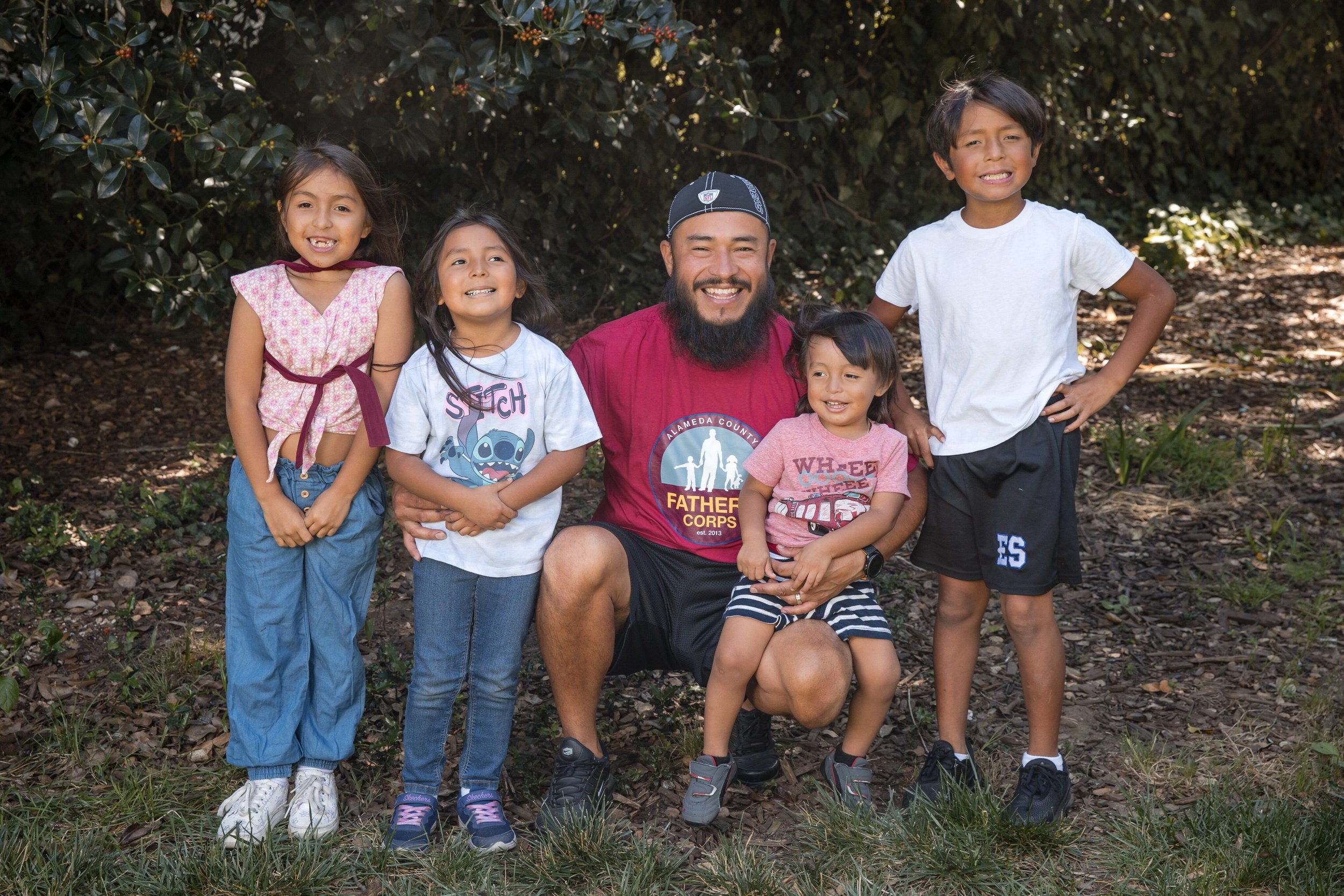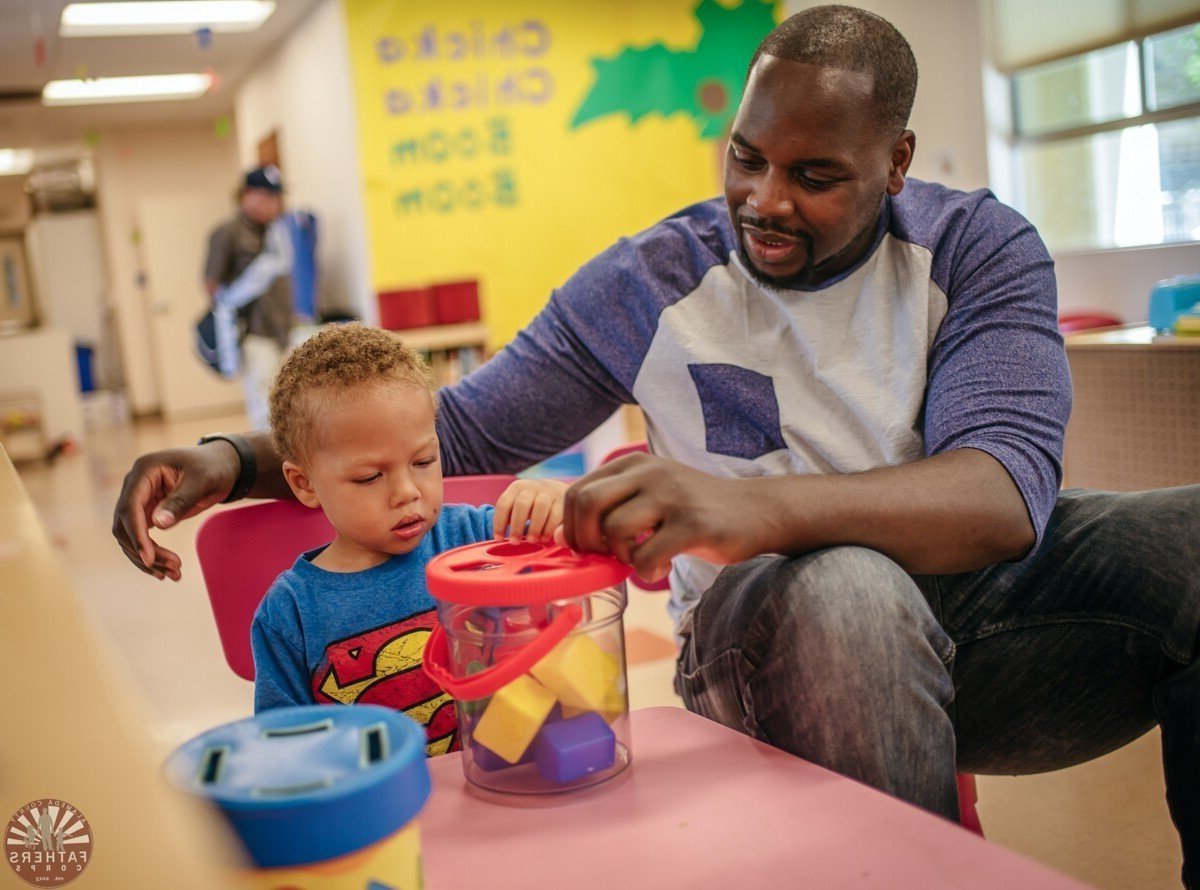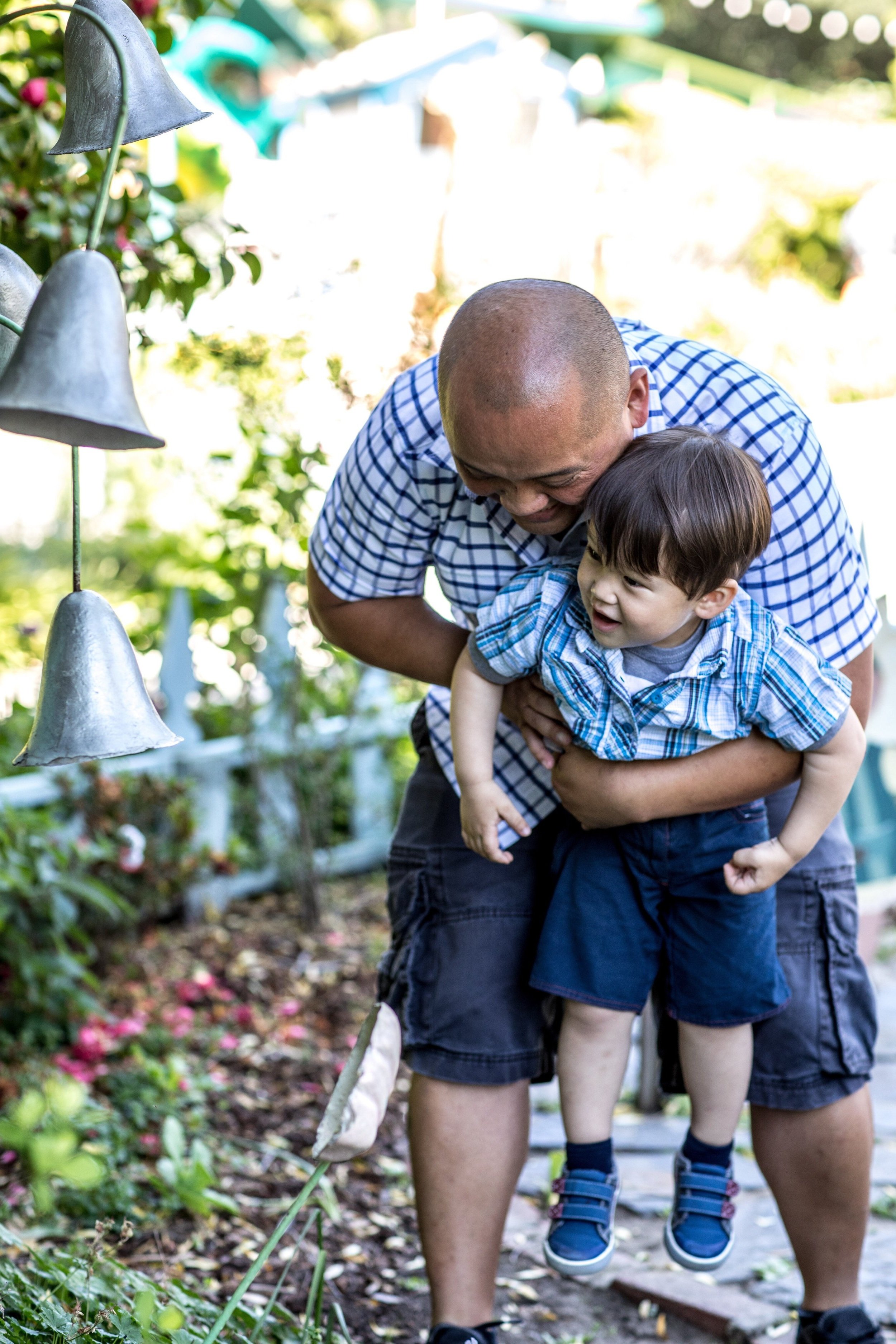
Frequently Asked Questions
Have questions about specific topics?

Kindergarten Readiness
-
Kindergarten or school readiness refers to a child's preparedness to participate and succeed in a kindergarten classroom environment. For parents, understanding these readiness indicators helps ensure their child transitions smoothly into elementary school. Kindergarten readiness is not just about academic preparedness, but includes the following areas:
Physical Health & Wellbeing
Emotional Maturity
Social Competence
Language & Cognitive Skills
Communication Skills & General Knowledge
See Tips on Kindergarten Readiness from First 5 California. You can find out more about how some schools in Alameda County will measure Kindergarten readiness using a tool called the EDI.
-
You can visit First 5 Alameda County’s website to find out more information about how to know your child is on track. You can also call First 5 Alameda County’s Help Me Grow toll-free phone line at (888) 510-1211 for information and support. The line is staffed by multilingual Care Coordinators who answer questions, offer support, and provide referrals.
-
There are many fun free activities available for families in Alameda County, visit First 5’s Resource Directory to learn more.
Paying for Childcare and Pre-K
-
The best resource in Alameda County for finding out if there are ways to get help paying for child care and Pre-K are Child Care Resource and Referral Agencies.
-
There are services available to help families struggling financially or with other issues, call 211 or go to 211bayarea.org to find out more.

Pre-Kindergarten (Pre-K)
-
“Pre-K” is a catch-all phrase we are using for the early care and learning centers where children ages 0-5 begin their learning journeys. They range from public to private, formal to informal and have different approaches to teaching.
Pre-K programs may use a combination of play-based and structured activities to encourage curiosity, creativity, and a love for learning. These experiences help children build confidence, independence, and the foundational skills needed for a smooth transition to kindergarten.
-
The earliest years of life are when the brain is most open to learning and growth. That’s why high-quality early care and education matter so much—they help lay the foundation for your child’s future success in school and in life. When children are in nurturing, engaging, and inclusive environments—with skilled teachers and caregivers, building meaningful relationships—they’re more prepared for kindergarten and beyond.
-
With so many ways to nurture and educate your little one, your family is bound to find the right one for you. Check out the “My Pre-K Options” page to walk through the various options.
-
Check out the “My Family” page for what to consider about your child’s and family’s needs.
-
The best resource in Alameda County for finding out if there are ways to get help paying for child care and Pre-K are Child Care Resource and Referral Agencies.
Transitional Kindergarten (TK)
-
Transitional Kindergarten (TK) is a free Pre-Kindergarten program where children learn together through play and develop their social skills. All four-year-old children are eligible for TK the year before entering Kindergarten. TK is free of charge as part of California’s public school system. For more information about TK, visit California UPK.
-
Starting in the 2025-26 school year, all children who turn four by September 1, 2025 are eligible for TK. Calculate if your child is eligible.
-
TK is not required. Families can choose to keep their child in their current child care or Pre-K option.
-
It’s important to call your school district to find out what the conditions around TK enrollment are for your child, both for the year of TK enrollment and for the future. Some schools are impacted by over enrollment some years. Ensuring your child has a place in the school you are zoned for might be a factor you consider when enrolling in TK. It is also true that spaces in Before and After School Care might be limited at a particular school site and securing a spot in TK may ensure you are more likely to retain that spot in future grade levels. However, every school district and every school are different. Asking the right questions of school district enrollment office staff will help you make an informed decision. Examples of good questions to ask about TK are here.
-
The hours of TK vary between school districts and school sites. And not all elementary schools offer TK in some school districts. Calling your school district enrollment office and asking questions is a good first step in helping you determine if TK is right for your child. Many districts also hold TK and Kindergarten Information Sessions. It’s important to stay informed by checking your school district’s website and social media accounts about these opportunities. You can find contact information for your school district on First 5 Alameda County’s list of school districts in our county.
-
There are a number of factors to consider when deciding if TK is right for your child and your family. For example, TK may not cover all the hours some families need child care, so it’s important to think about what works best for your family. Free before- and after-school programs may be available for families who qualify. Be sure to ask your school about the options available in your area when inquiring about TK with your school district.
-
Your local school district can tell you which elementary schools in your neighborhood offer TK programs, as some elementary schools do not have a TK program. To enroll your child, you will need to provide required documentation to your local school district which may include your child’s birth certificate, proof of residence, and immunization records. Be sure to check with your school district enrollment office to understand what documentation is required. Check out First 5 Alameda County’s list of school districts in our county to find out how to contact your district.
-
Here are resources to learn more about TK:

California State Preschool Program (CSPP)
-
CSPP is a state-funded, high-quality preschool program for children to learn together through play and develop their social skills. CSPP is available for free or low-cost to eligible families of three- and four-year-old children.* CSPP is a program that is available in a variety of different settings, depending on your area. Check with your local resource and referral network to find out what options are available to you.
*Through June 2027, CSPP providers may offer an early enrollment option for eligible two-year-old children, expanding access to high-quality early learning.
-
Three- and four-year-old children (and two-year-olds in some programs) may qualify if:
Any member of their family receives government assistance (like CalWORKs, Medi-Cal, CalFresh, WIC, or Head Start)
Their family is income eligible (at or below 100% of the State Median Income)
Their family is experiencing homelessness
The child has an identified disability with an individual family service plan (IFSP) or individual education program (IEP)
The child receives child protective services or is at risk of abuse, neglect, or exploitation
-
Contact your local Resource and Referral agency or call 1-800-KIDS-793 and ask them about State preschool programs near you.
-
Head Start is a program for children aged 0-5 children primarily funded by the federal government. Head Start services are available at no cost to eligible families, and many also serve expectant families. Programs deliver child development services in center-based, home-based, or family child care settings.
-
Contact your local Resource and Referral agency or call 1-800-KIDS-793 and ask them about State preschool programs near you.
Head Start
What’s next?
Now that you're ready to take the next step, connect with your local Child Care Resource and Referral Agency.